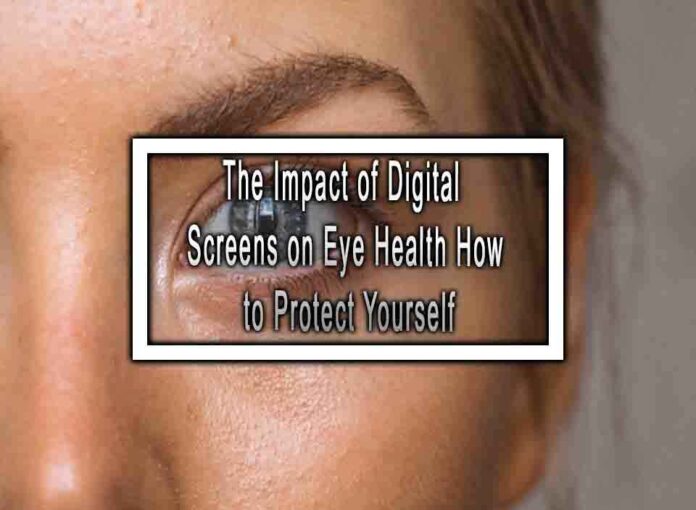Digital screens, such as those on computers, smartphones, tablets, and televisions, have become an integral part of modern life. While they offer many benefits, prolonged and improper use can have adverse effects on eye health. Prolonged exposure to digital screens can cause significant eye strain, a condition commonly referred to as digital eye strain or computer vision syndrome.
Reading glasses designed specifically for screen use often come with blue light-blocking technology, which helps reduce the harmful effects of blue light emitted by digital devices. By wearing glass lens reading glasses, you can alleviate symptoms such as headaches, dry eyes, and blurred vision while maintaining proper focus and reducing fatigue during extended screen time.
Here’s an overview of the impact of digital screens on eye health and how to protect yourself:
Digital Eye Strain (Computer Vision Syndrome):
Prolonged screen time can lead to digital eye strain, characterized by symptoms like eye fatigue, dryness, redness, headaches, and blurred vision.
Blue Light Exposure:
Digital screens emit high-energy blue light, which can penetrate deep into the eye. Overexposure to blue light may contribute to digital eye strain and disrupt sleep patterns by suppressing melatonin production.

Reduced Blinking:
When using digital screens, people tend to blink less frequently. Reduced blinking can lead to dry eyes and discomfort.
Increased Myopia (Nearsightedness):
Some studies suggest that excessive screen time, especially during childhood and adolescence, may be associated with an increased risk of myopia.
Tips to Protect Your Eyes:
Follow the 20-20-20 Rule:
Every 20 minutes, take a 20-second break, and look at something at least 20 feet away to reduce eye strain.
Proper Screen Distance:
Maintain an ergonomic setup by positioning your screen at eye level and about 20-24 inches away from your eyes.
Blink Frequently:
Make a conscious effort to blink more often while using digital screens to keep your eyes moist.
Adjust Screen Settings:
Reduce screen brightness and adjust the contrast to comfortable levels. Use larger fonts when reading on screens.
Anti-Glare Screens:
Consider using anti-glare screens or applying anti-reflective coatings to your glasses, if applicable.
Blue Light Filters:
Use blue light filters or screen protectors on your devices to reduce blue light exposure, especially in the evening.
Take Breaks:
Incorporate regular breaks into your screen time. Stand up, stretch, and walk around to reduce muscle tension.
Eye Exercises:
Perform eye exercises to help relax and strengthen eye muscles. Simple exercises like rolling your eyes, focusing on a distant object, and gently massaging your eyelids can be beneficial.
Hydration:
Stay well-hydrated to maintain proper tear production and prevent dry eyes.
Use Artificial Tears:
Consider using preservative-free artificial tears to relieve dryness and maintain moisture in your eyes.
Monitor Screen Time:
Be mindful of your screen time, especially before bedtime, as excessive exposure to screens in the evening can disrupt sleep patterns.
Regular Eye Exams:
Schedule regular eye exams with an optometrist or ophthalmologist to monitor your eye health and address any issues promptly.
Remember that everyone’s eyes are different, and what works for one person may not work for another. If you experience persistent eye discomfort, pain, or vision changes, consult with an eye care professional for a comprehensive evaluation and personalized recommendations. Prioritizing eye health and implementing these tips can help mitigate the impact of digital screens on your eyes and overall well-being.
See Also: Canberra’s 6 Most Affordable Laser Eye Clinics for Quality Treatment











